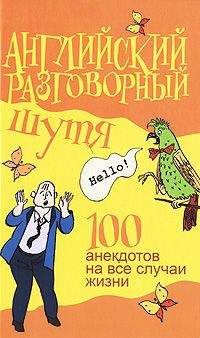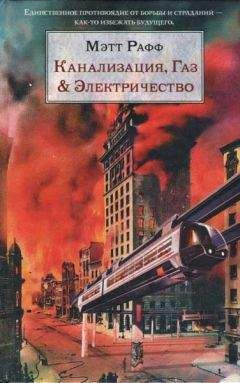1. Answer the questions to the text:
1. How many bulls were there?
2. What were their names?
3. Why was George pretty excited?
4. Where did he want to go and why?
5. Why did Sam suggest that they wait until the heifers were lined up at the feed trough?
6. Where did Sam and George plan to meet?
7. Did they meet?
8. Wasn't Sam a real gentleman?
9. Wasn't George a gentleman, either?
2. Fill in the blanks with the words from the text:
1. There were two bulls, a young _______ named George and an old _______ named Sam.
2. It was that time of year _______ the local female population.
3. Young George was _______ excited.
4. George, _______.
5. We'll wait _______ they're lined up at the feed trough.
6. Feeding time came and all the heifers were _______ up.
7. Now, George, here is how this is _______ work.
8. One more important thing _______.
9. He remembers Sam's instructions about _______ polite.
3. Match the two parts of each sentence:
4. Match the words and expressions in the left column to those in the right one:
5. Translate from Russian into English:
1. Молодой Джордж был здорово возбужден.
2. Пришло время кормления.
3. У Сэма было еще несколько советов.
4. Вот как это будет работать.
5. Встретимся в середине.
6. Погоди, Джордж. Стоит запомнить еще одну важную вещь.
7. Окажи им уважение и будь вежлив.
Revise English Grammar
В предложениях There were two bulls… It was that time of year… мы имеем дело с конструкциями, в которых в качестве формального подлежащего используются местоимения there и it, сочетающиеся как со сказуемым с глаголом to be.
Проверьте, правильно ли вы используете эти конструкции в утвердительных и отрицательных предложениях (при необходимости см. грамматический комментарий; раздел 6).
6. Fill in the blanks:
1. How many bulls (was, were) _______ there on the farm?
2. (It, There) _______ was that time of year when bulls were pretty excited.
3. (It, There) _______ was the heifers that were lined up at the feed trough.
4. There (was, were) _______ a bull and some heifers there.
5. (There, It) _______ is one more important thing to remember.
6. (There, It) _______ was spring and the bulls were pretty excited.
7. (There, It) _______ was George who well remembered Sam's instructions about being polite.
7. Put the verbs in brackets into appropriate forms:
1. Two bulls (to want) _______ to satisfy all the local female population last year.
2. Sam (to go) _______ down to those heifers over there yesterday.
3. We (to wait) _______ until they're lined up at the feed trough.
4. We (to have) _______ our way with the ladies in a nice orderly fashion in five minutes.
5. Feeding time (just to come) _______. Line up!
6. Sam (to start) _______ at one end, and George started at the other.
7. We (to meet) _______ very soon. You'll have to wait a little.
8. Are you (to show) _______ respect to these ladies?
8. Find English equivalents to the Russian words in the scanword:
1. (p… ) население, 2. (t… ) кормушка, 3. (s… ) удовлетворять, 4. (r… ) расслабляться, 5. (f… ) кормление, 6. (r.. ) уважение, 7. (f…) особь женского пола, 8. (е…) восклицать, 9. (а…) позволять, 10. (р…) молиться.
9. Render the joke.
A farmer got a good deal on a dozen pigs at an auction. When he got them home he realized they were all females so he talked to his neighbor to see if he could bring his girl pigs over to meet with his boy pigs so this man could get some babies. The neighbor agreed and so the farmer loaded the girl pigs in his truck to visit the neighbor's pigs.
That night he went back to pick them up and he asked his neighbor, «How will I know if they are going to have little pigs?» The neighbor said that they would start acting real different and that he could just tell. So next morning he went and checked his pigs and they were just acting normal so he took them back to the neighbor's again. Next morning same thing no change so he took them back.
Next morning he was sitting at the table and he said to his wife, «Honey, look out the window and see if the pigs are acting different.» She looked out the window and said, «Well, I don't know how different you mean but eleven of them are in the back of the truck and one is behind the wheel honking the horn!!!»
Study the words and expressions given below:
auction аукцион
to realize осознавать
to load грузить
truck грузовик
to check проверять
honey мед; зд. дорогая
wheel колесо; зд. рулевое колесо, баранка
to honk сигналить, гудеть
horn рог; зд. клаксон
to get a good deal on sth разг. совершить удачную покупку чего-л.
to get sth home разг. привезти, доставить что-л. домой
to start acting real different разг. начать вести себя действительно не так
next morning разг.the next morning
to be just acting normal разг. просто вести себя обычно
same thing no change разг. то же самое и никаких изменений
neighbor's соседский (дом, ферма)
to look out the window разг.to look out of the window
back of the truck зд. кузов грузовика
Exercises to the text
1. Answer the questions to the text:
1. How many pigs did the farmer get at the auction?
2. What did he realize when he got home?
3. What did he speak with his neighbor about?
4. How did he get the pigs to the neighbor's farm?
5. How could the farmer get to know if his girl pigs were going to have babies?
6. How were the pigs acting after the farmer had brought them from his neighbor's for the first time?
7. How were they acting when the farmer's wife saw them out of the window?
2. Fill in the blanks with the words from the text:
1. A farmer got a good _______ on a dozen pigs.
2. When he got them home he _______ they were all females.
3. He wanted to bring his girl pigs _______ to the neighbor's boy pigs _______ they could get some baby pigs.
4. The farmer _______ the girl pigs in his truck.
5. That night he went back _______ them up.
6. They would start acting real_______ .
7. Next morning he went and _______ his pigs.
3. Say if the statements are true or false:
1. A farmer got a good deal on a hundred dozen pigs at an auction.
2. When he got them home he realized they were all females.
3. The neighbor agreed and so the farmer loaded the boy pigs in his truck.
4. The neighbor said that they wouldn't act real different.
5. Next morning he was sitting at the table and he asked his wife if the pigs were acting different.
6. One of them is in the back of the truck and eleven are behind the wheel honking the horn.
4. Match the words and expressions in the left column to those in the right one:
5. Translate from Russian into English:
1. Он поговорил со своим соседом, чтобы удостовериться, не может ли он привезти к нему своих поросят.
2. Сосед согласился, и фермер погрузил своих поросят на грузовик.
3. Тем же вечером он отправился назад, чтобы забрать их.
4. Как я узнаю, не собираются ли они иметь маленьких поросят?
5. Дорогая, выгляни в окно и посмотри, не ведут ли себя поросята необычно.
6. Одиннадцать из них – в кузове грузовика, а одна – за баранкой и сигналит.
Revise English Grammar
В предложениях The neighbor said that they would start acting real different… So next morning they were just acting normal… содержится характерное для разговорной речи нарушение согласования глагола и наречия – последнее заменено на прилагательное.
Нормативное согласование глагола и определяющих его частей речи предполагает следующую форму:
The neighbor said that they would really start acting differently…
So next morning they were just acting normally…, где обстоятельство образа действия выражено не прилагательным, а наречием.
Вместе с тем и в нормативном употреблении есть исключения.
Проверьте, насколько хорошо вы знакомы с правилом согласования глагола и наречия/прилагательного (в случае необходимости см. грамматический комментарий; раздел 7).
6.Fill in the blanks choosing the appropriate variant of the words in brackets:
1. What you say about your boy pigs sounds really (good, well) _______.
2. The neighbor (happy, happily) _______ agreed and
so the farmer (quick, quickly) _______ loaded his pigs in the truck.
3. Honey, look out the window and see if the pigs are acting (different, differently) _______.
4. Eleven of them are in the back of the truck and one is behind the wheel honking the horn rather (loud, loudly) _______.
5. The farmer could (hard, hardly) _______ get his girl pigs home – so (happy, happily) _______ they were.
7.Make as many special questions as possible:
1. A farmer got a good deal on a dozen pigs at an auction.
2. The farmer loaded the girl pigs in his truck to visit the neighbor's pigs.
3. The neighbor said that they would start acting real different.
4. Next morning he went and checked his pigs.
5. Next morning he was sitting at the table.
8.Render the joke.
Section 8
Darling, i have a confession
A young couple were on their honeymoon. The husband was sitting in the bathroom on the edge of the bathtub saying to himself, «Now how can I tell my wife that I've got really smelly feet and that my socks absolutely stink? I've managed to keep it from her while we were dating, but she's bound to find out sooner or later that my feet stink. Now how do I tell her?»
Meanwhile, the wife was sitting in the bed saying to herself, «Now how do I tell my husband that I've got really bad breath? I've been very lucky to keep it from him while we were courting, but as soon as he's lived with me for a week, he's bound to find out. Now how do I tell him gently?»
The husband finally plucks up enough courage to tell his wife and so he walks into the bedroom. He walks over to the bed, climbs over to his wife, puts his arm around her neck, moves his face very close to hers and says, «Darling, I've a confession to make.»
And she says, «So have I, love.»
He cries out, «Don't tell me you've eaten my socks!»
Study the words and expressions given below:
confession признание
couple пара
honeymoon медовый месяц
edge край
bathtub ванна
smelly пахучий, вонючий
to stink вонять
to manage удаваться, преуспевать в чем-л.
to date зд. встречаться до брака
meanwhile тем временем
breath дыхание
to court ухаживать
gently мягко
to climb забираться
hers ее
to keep sth from sb скрывать что-л. от кого-л.
to be bound быть вынужденным
to find out обнаруживать
sooner or later рано или поздно
to be lucky быть удачливым
as soon as как только, так…
to pluck up enough courage собраться с духом




